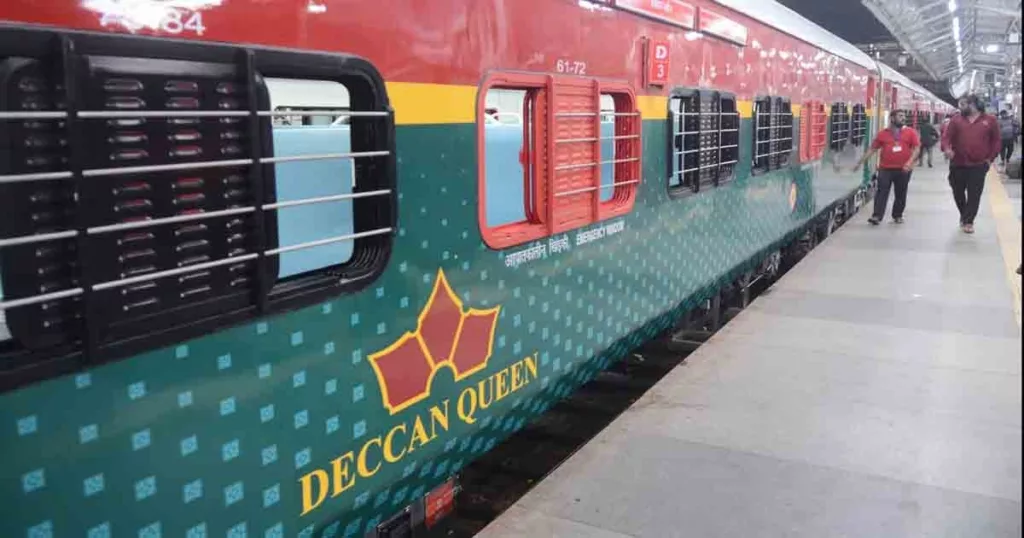Fire Scare on Pune Mumbai Deccan Queen Express Causes Brief Delay Of 45 Mins in Mumbai Arrival

Fire Scare on Pune Mumbai Deccan Queen Express Causes Brief Delay Of 45 Mins in Mumbai Arrival
While the incident caused a temporary delay, passengers expressed gratitude for the swift response of railway staff in mitigating the situation
Payoshi Bisht
Passengers traveling aboard the Pune-Mumbai Deccan Queen experienced a moment of alarm during a brake-binding incident, leading to a 45-minute delay in its arrival at Chhatrapati Shivaji Maharaj Terminus (CSMT) on Thursday.
According to a statement from a Central Railway official, the Deccan Queen, which commenced its journey from Pune to Mumbai at 7:15 am on Thursday, encountered the issue approximately at 8:30 am while awaiting signals near the descent on the Karjat-Khandala Ghat section. Passengers were quick to notice smoke emerging from beneath one of the coaches.
In response, passengers promptly disembarked and notified the onboard guard. Upon inspection, it was revealed that a fire had ignited in the wheels of one of the coaches. Fortunately, swift action by the guard facilitated the containment of the fire using the onboard extinguishing system.
Harsha Shah, chairman, Railway Pravasi Group, Pune informed that the Pune Mumbai Deccan Queen Express experienced a fire incident at Khandala ghat as the tyres due to friction caught fire in the ac coaches. This led to stoppage of the railay to curb any further mishap. I have been raising my voice against the poor quality rakes which need to be changed. The railway administration must look into this matter and refurbish the train.
Preliminary insights from railway authorities indicate that the steep descent from Pune to Mumbai might have induced excessive friction, resulting in brake binding and subsequently leading to the ignition of rubber on the wheels. This incident echoes similar occurrences beneath the coaches of both the Deccan Queen and the Deccan Express, which have been linked to elevated temperatures and excessive brake friction.







